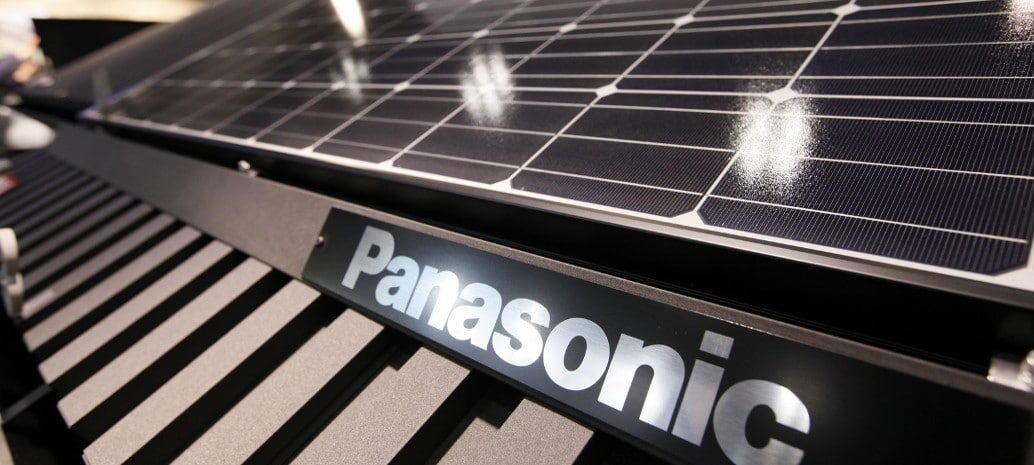The troubled Chinese PV group’s Hantile triple arch solar tiles will retail for 1390 yuan ($206.50) per square meter in China. The tiles — made with laminated packaging technology — are backed by a lifetime warranty, in addition to a lifetime charged maintenance guarantee.
Eventually, Hantile will be released in flat, curved and upturned variants. At the recent Hantile launch in Beijing, an installation team built a 5 kW rooftop PV array — spanning 50 square meters in total — with the tiles on a stage as Li Hejun, chairman of Hanergy, introduced the new product line to the media.
All Hantile systems will include an inverter data collector, supported by the company’s centralized data analysis platform. Significant output discrepancies will trigger automated orders for on-site repairs throughout China, according to an online statement.
The company produces Hantiles by encapsulating thin, flexible thin-film solar cells into ultra-clear float glass. It claims the PV cells in Hantile offer a conversion efficiency rate of 16.5% at the production level, with a target of 17.5% by the end of 2017.
HTF claims that as a building material, Hantile conserves heat more effectively and offers better thermal insulation than standard roof tiles. Its glass Hantile products are waterproof and can generate electricity at temperatures ranging from -40C to 85 C. The product line has been certified by the Chinese authorities.
It estimates potential demand for Hantile in China at roughly 1.4 trillion yuan per year. The company will target commercial developments and new residential builds. “Hantile is also highly competitive when it comes to rooftop reconstruction projects, such as renovating aged rooftops and turning flat rooftops into slanted ones,” the company said.
In April, Hanergy revealed plans to deepen its partnership with Solliance, in a bid to develop new ways to integrate PV into buildings and public infrastructure projects. They will start by attempting to mass-produce the PV-integrated pavement that was used for SolaRoad, a pilot PV-powered public roadway project in the Netherlands. Last November, a US-based unit of Hanergy supplied solar panels for a trial extension of the $3.3 million SolaRoad project, which was launched in 2014 by Dutch research institute TNO.
The Hanergy group has continued to sign such agreements — while releasing new products and announcing a new investment in 300 MW of annual thin-film PV production in northern China — despite long-unanswered questions about its business practices. HTF’s stock has been suspended from trading on the Hong Kong stock exchange for more than two years. Trading of the stock was halted by Hong Kong’s Securities and Futures Commission (SFC) in May 2015 after it plunged roughly 47% in a single morning trading session, shaving about $19 billion off the company’s total market value.
The suspension followed roughly a year of stratospheric gains for the stock, despite questions about HTF’s reliance on sales of solar manufacturing equipment to its unlisted, Beijing-based parent. At the beginning of this year, HTF said it would follow an order from the SFC to pay outstanding debts to its subsidiaries, as a step toward resuming trading of its stock. However, it remains uncertain when and if the stock will resume trading on the Hong Kong market.
In April, Hanergy — which has acquired several thin-film PV suppliers over the years, including former Q-Cells subsidiary Solibro — reported a profit of HK$252 million ($32.3 million) for 2016, on annual revenue of HK$4.48 billion. The results contrasted sharply with the net loss of HK$12.2 billion that it reported in 2015.
This content is protected by copyright and may not be reused. If you want to cooperate with us and would like to reuse some of our content, please contact: editors@pv-magazine.com.



1 comment
By submitting this form you agree to pv magazine using your data for the purposes of publishing your comment.
Your personal data will only be disclosed or otherwise transmitted to third parties for the purposes of spam filtering or if this is necessary for technical maintenance of the website. Any other transfer to third parties will not take place unless this is justified on the basis of applicable data protection regulations or if pv magazine is legally obliged to do so.
You may revoke this consent at any time with effect for the future, in which case your personal data will be deleted immediately. Otherwise, your data will be deleted if pv magazine has processed your request or the purpose of data storage is fulfilled.
Further information on data privacy can be found in our Data Protection Policy.